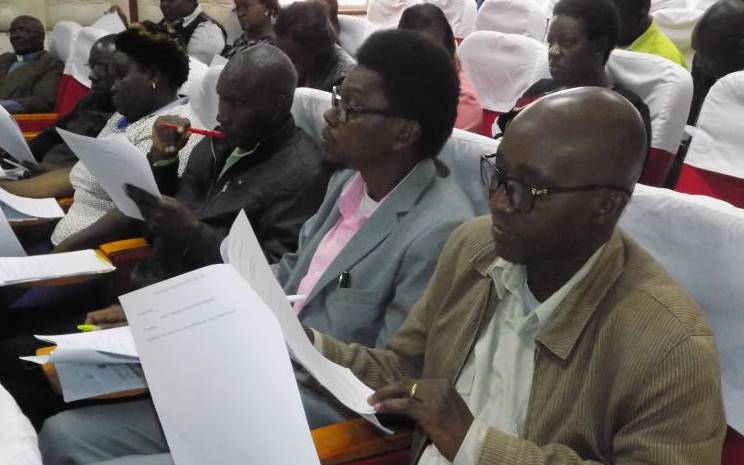×
The Standard e-Paper
Kenya’s Boldest Voice

Participants at the Embu's Kenya School of Government, Embu Campus during views collection on the National Kiswahili Council Bill 2019. [Joseph Muchiri, Standard]
Kiswahili language teachers, lecturers, and experts want the Government to maximally utilise the language in its policies and agendas’ communication to unlock its massive potential to the country’s development.